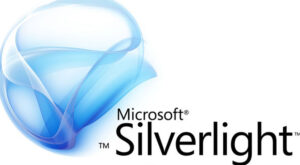
Significant turning point in the world of software development with the widespread adoption of the C# programming language. Developed by Microsoft, C# (pronounced C-sharp) had been gaining popularity steadily since its inception in the early 2000s, and in 2009, it reaching a critical mass. In this article, we will explore why 2009 is the perfect time to dive into C# and how it has since become a cornerstone in the world of programming.
C# – A Language with a Vision
C# is designed to be a versatile, modern, and object-oriented programming language with a strong focus on simplicity and ease of use. By 2009, C# had matured significantly, offering a comprehensive set of features, tools, and libraries that made it an ideal choice for various application domains.
- Integration with the .NET Framework: One of the key strengths of C# is its seamless integration with the .NET Framework, a powerful platform for building Windows applications. This integration allowed developers to leverage a wide range of pre-built libraries and components for application development, saving time and effort.
- Rich Set of Features: C# offered a rich set of features, including strong typing, automatic memory management (through garbage collection), support for modern programming constructs like lambda expressions and LINQ, and an extensive standard library.
- Visual Studio: Microsoft’s Visual Studio development environment is evolved to become a robust, user-friendly, and feature-rich IDE for C# development. It provided tools for debugging, code analysis, and a drag-and-drop interface for designing Windows applications.
- Strong Community: C# is garnered a substantial developer community that actively contributed to the language’s ecosystem. Online forums, tutorials, and resources for C# is abundant, making it easy for newcomers to get started.
- Versatile Application Development: C# is not limited to Windows applications. It could be used for web development (ASP.NET), mobile app development (Windows Mobile), and game development (XNA). This versatility made C# a powerful and flexible choice.
Impact on Software Development
The decision to explore C# in 2009 had profound implications for software development:
- Windows Software: C# became the language of choice for developing Windows applications, including desktop software and services, due to its integration with the .NET Framework.
- Web Development: C# is widely adopted for web development using ASP.NET, offering developers a robust and secure platform for building web applications.
- Enterprise Solutions: Many businesses adopted C# for developing enterprise-level software, including customer relationship management (CRM) applications, enterprise resource planning (ERP) systems, and financial software.
- Mobile Development: C# is utilized for Windows Mobile application development, laying the foundation for modern Windows Phone apps.
- Game Development: C# gained popularity in the gaming industry with the introduction of the XNA Framework, which allowed developers to create games for Xbox and Windows platforms.
Looking Ahead
2009 is an opportune time to embrace C# as a programming language. Today, C# has become a cornerstone in software development, with a thriving community, support for various platforms, and a continually growing set of tools and libraries. And for those considering it now, it’s never too late to dive into the world of C# and be part of its ever-evolving journey.



